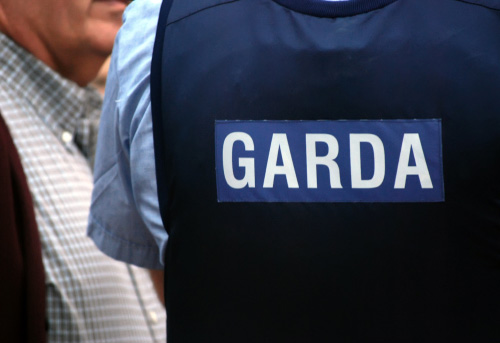Landmark bill to put police search, arrest and detention powers on statutory basis

Police powers of search, arrest and detention will be placed on a “clear and transparent” statutory basis through new legislation announced today.
Justice Minister Heather Humphreys has published the general scheme of the Garda Síochána (Powers) Bill, which will implement one of the key recommendations of the Commission on the Future of Policing in Ireland.
The powers set out in the bill will be supported by statutory codes of practice, and will include explicit provisions on human rights.
The government said the new measures in the bill include:
- The introduction of a single power of arrest, which will “increase the scope of Garda arrest powers, but also make the power subject to conditions to ensure the arrest is necessary in the particular circumstances … in line with other common law jurisdictions”;
- Placing the Garda caution on a statutory basis and removing the requirement for a written contemporaneous note of a Garda interview in cases where it can be recorded by other means;
- Introducing a statutory right for the accused to have their lawyer present at interview;
- A power for An Garda Síochána and other bodies to require a person to provide passwords for access to electronic devices when carrying out a search warrant;
- A new requirement for a written record of a stop and search in order to collect data necessary to assess the effectiveness and use of the relevant powers.
Statutory codes of practice will be drawn up to provide guidance for gardaí in exercising their powers under the bill, and special measures will be taken for suspects who are children and suspects who may have impaired capacity.
Mrs Humphreys said: “The law in this area is currently very complex, spread across the common law, hundreds of pieces of legislation, constitutional and EU law. Bringing it together will make the use of police powers by gardaí clear, transparent and accessible.
“The aim is to create a system that is both clear and straightforward for gardaí to use and easy for people to understand what powers gardaí can use and what their rights are in those circumstances.”
She added: “At the same time, where we are proposing to extend additional powers to gardaí, we are also strengthening safeguards. The bill will have a strong focus on the fundamental rights and procedural rights of the accused. I believe this will maintain the crucial balance which is key to our criminal justice system, while ensuring greater clarity and streamlining of Garda powers.
“This bill, along with the implementation of the other recommendations of the Commission on the Future of Policing in Ireland, will improve and copper-fasten a policing practice which is focused, intelligence-based and underpinned by community confidence and support. It will enhance the bedrock of safeguards for good policing – trust, legitimacy and authority.”
The bill will provide for longer detention periods for some suspects. Those being investigated for multiple offences can be detained for up to 48 hours under the bill, and suspects in human trafficking cases will be able to be detained for up to a week.
However, the longer detention periods are subject to authorisation by a court and can only be used where necessary to investigate the alleged offences.
The general scheme will now be sent to the Oireachtas joint committee on justice for pre-legislative scrutiny.










